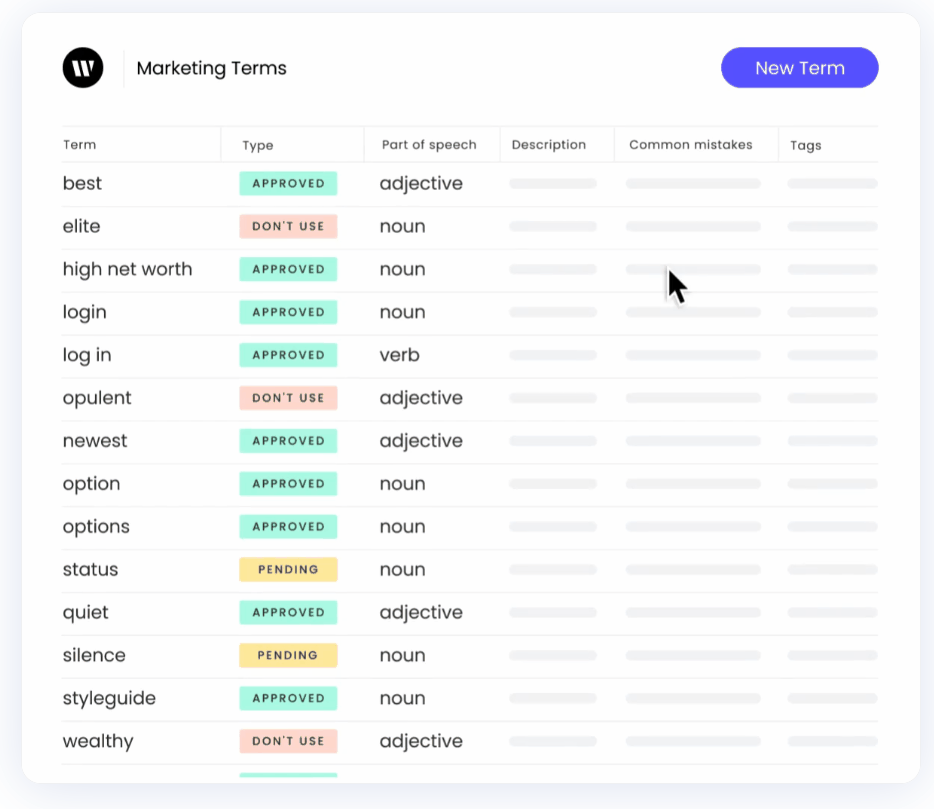For any company, organization, or even individual writer, maintaining a consistent voice is a constant challenge. Writer is a startup aiming to provide a solution with an intelligent integrated style guide that goes beyond mere error checking. Following a $5M seed last year, the company has now raised a $20M A round to continue growing and improving its service.
Founder and CEO May Habib says that writing is “the last unstructured business process,” which is perhaps a bit optimistic (sometimes I think every business process is unstructured) but nevertheless a cogent thesis on which to build a company. Writing is, after all, fundamentally a creative process, and it is only by systematically taming that process that writing is able to be used as a business tool. (Even now I am taming it: must… resist… using em dashes in every sentence…)
It’s one thing to make sure that copy is clean and accurate, quite another to make sure that a dozen writers do not have clashing styles, use inaccurate or inappropriate phrases, and generally stick to a tone and style chosen by leadership. Of course there are style guides — even TechCrunch has one — but anyone who writes for a living knows how difficult it can be to stop and consult one when they’re in the zone.
Writer is meant to be a sort of style guide angel that sits on your shoulder and keeps your writing in line while you’re writing. It plugs into Chrome and Word, among other platforms, and instantly catches you out on everything from typos to company tone. Basically, Habib explained, you “take these 80, 90-page guidelines and turn it into a web app that becomes the single source of truth.” Notably this is all done without using a client company’s content as training data, so there’s no risk of HIPAA or security violations that way.
That helps not just keep copy clean, but also make sure companies are taking action on things like, for example, inclusive language. A company may not have considered it worth formalizing in its style guide how to use gender-neutral language, or how to refer to various groups in the preferred manner, but it’s built into Writer if you want it — just check a few boxes and now all your company’s copy will be written more inclusively in line with recommendations from experts. There are other basic rules users can configure around common items like hyphenation, spacing, date and location formatting, serial commas, and so on.
But you knew all this, because you read all about Writer back in 2020. So what’s new? Well, apart from the money, the company is growing fast. They’ve nearly doubled their staff, from 14 to 25 (still small, obviously, but growing fast) and have signed up a laundry list of high-profile customers: Twitter, Intuit, Pinterest, Accenture, Deloitte, and UnitedHealthcare among 150 or so more. The growing client list contributed to a tripled ARR over the last year. DAUs and MAUs and all those lovely metrics have risen steadily as well.
Confidence from happy customers has led the company to begin diversifying its service, branching out from correction and guidance into automation. Now, “automated’ writing sounds pretty bad, but only if you are still clinging to that creative instinct. Writing is about effective communication, and in a professional context that means consistency. So things like text snippets, already widely used in the industry, can be included in a smarter, more easily deployed way.
The app now also supports multiple teams within an organization, so sales and editorial, for example, don’t have clashing definitions or recommendations. There’s also Figma integration now, a commonly requested feature now that style is being included as part of broader design systems at many companies.
The most intriguing feature is still a little ways down the roadmap: a more sophisticated language-aware AI system that understands context and content, akin to OpenAI’s GPT-3 but independently developed. How and why this was attempted will be worth investigating when more information is available.
But the applications are obvious: An app that’s aware of what you’re writing and the broader context can make suggestions that are based on hazier concepts like overall tone or intention. For example it might be able to tell that you’re attempting to state the company’s policy on refunds, and automatically suggest the approved standard copy for that. No need to go hunting around for the right snippet or consult the style guide. Or it could see that overall the piece uses more technical or jargon than is generally liked, and recommend reworkings of entire paragraphs in plainer language.
At any rate, the company is looking to continue expanding and staffing up, something $21M ought to help with. The round was led by Insight Partners, with a very long list of other participants: Gradient Ventures, the Todd & Rahul Angel Fund, Scott Belsky, Oliver Jay, Jack Altman, Allison Pickens, Packy McCormick, Lenny Rachitsky, Austin Rief, Ankur Nagpal, Alex MacCaw, Camille Ricketts, Vivek Sodera, Julia Lipton, and James Beshara.
Keep an eye open for more news soon about Writer’s language AI ambitions.


